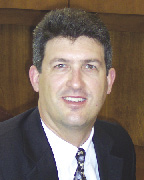We're all living in this dreadful economy - and yet we have to figure out how to always do more with less. With today's budgets being scrutinized more and more, preventive maintenance is likely on the top of your list of things to cut. Never mind electrical preventive maintenance - on the stuff you don't see or hear!
We've heard way too many property managers espouse the idea that "there's no budget for preventive maintenance, but we can always get money for emergencies when they happen." The sheer wrong-headedness of this is mind-boggling. From an investment and return perspective - it's completely upside down.
McPhee Electric, Ltd, with offices in Farmington and Stratford, Conn. and Medford, Mass., has expanded its electrical preventive maintenance services under the PowerHawkesm banner, in an effort to engage more customers in what it believes is an absolute must in today's era of critical power systems.
Now we're pragmatists, so we understand the reality of what's happening out in your world today, so we thought we'd share our 5 KEY TIPS when it comes to making sure your critical power systems do what you expect when you need them.
KEY TIP #1 - KEEP IT CLEAN
Most property managers know the state of cleanliness in their facilities - and it's no different with their electrical critical power systems areas. A simple cleaning of the area around equipment and if possible, during a de-energized period, in or on the equipment itself, is our #1 TIP to avoid problems. Dust, moisture, dirt, oil, grease, vermin, and even misplaced tools can all be contributing factors that cause problems or catastrophic failure.
KEY TIP #2 - LOOK AROUND
A conscious, visual inspection is one of the most important techniques to head off trouble. Our TIP #2 is to use visual checks to look for abnormal conditions. As an example: cracked insulation on conductors or a burnt smell can mean overheating and a fire hazard; missing covers, knock-outs and cover plates can represent electrical shock and burn hazards; and dripping water, oil or grease can all end in shock or fire hazards.
KEY TIP #3 - DO SOMETHING, REGULARLY
It doesn't cost much to be regularly diligent. Whatever you do - even the simplest visual inspection for example - do it regularly. Our TIP #3: a monthly inspection pays huge dividends not only in identifying potential problems, but also helps to prioritize basic maintenance activities to get the most bang-for-the-buck. The ability to observe conditions over time is the single most cost-effective technique a property manager can use to head off problems, failures and disaster.
KEY TIP #4 - KEEP AN INVENTORY
What good is it if all the facts, figures and observations about your critical power system only exist in Fred the maintenance guy's head? A simple 3-ring binder with the inventory, equipment specs, repair history and inspection notes are key to keeping you out of trouble. Our TIP #4 might seem like a no-brainer, but a vast majority of customers we've worked for in emergency situations have no idea what they have or when anyone last looked at it.
KEY TIP #5 - ACT SAFELY
If nothing else, TIP #5 is probably the most important. With all of the focus today on Arc Flash Hazards and NFPA 70E, you have to ask the question of your employees and contractors - "Can this electrical work be done de-energized?" Inconvenience is not an excuse with OSHA for maintaining situations where workers get shocked or burned during maintenance or repair activity. Remember, you can't push off the risk to an outside contractor either - you are responsible for everyone working safely on your site. Make sure employees AND contractors have credentials and equipment to work safely. De-energized electrical work should be the norm - not the exception.
Protect What Matters
Over the years, we've seen case after case where business disasters could have been avoided or severely lessened if only some simple critical power systems measures were put in place. Our 5 KEY TIPS are central to our belief that a simple PowerHawke program will insure that your business is not unnecessarily adding risk that you don't need. Remember - clean, conscious, regular, documented, safely - and you'll be on your way to a plan to Protect What Matters.
Michael Balinskas is director of business development for McPhee Electric, Ltd., Farmington, Conn.
Tags:
5 key tips to do more with less by protecting and maintaining your building's critical power systems
September 15, 2010 - Connecticut









